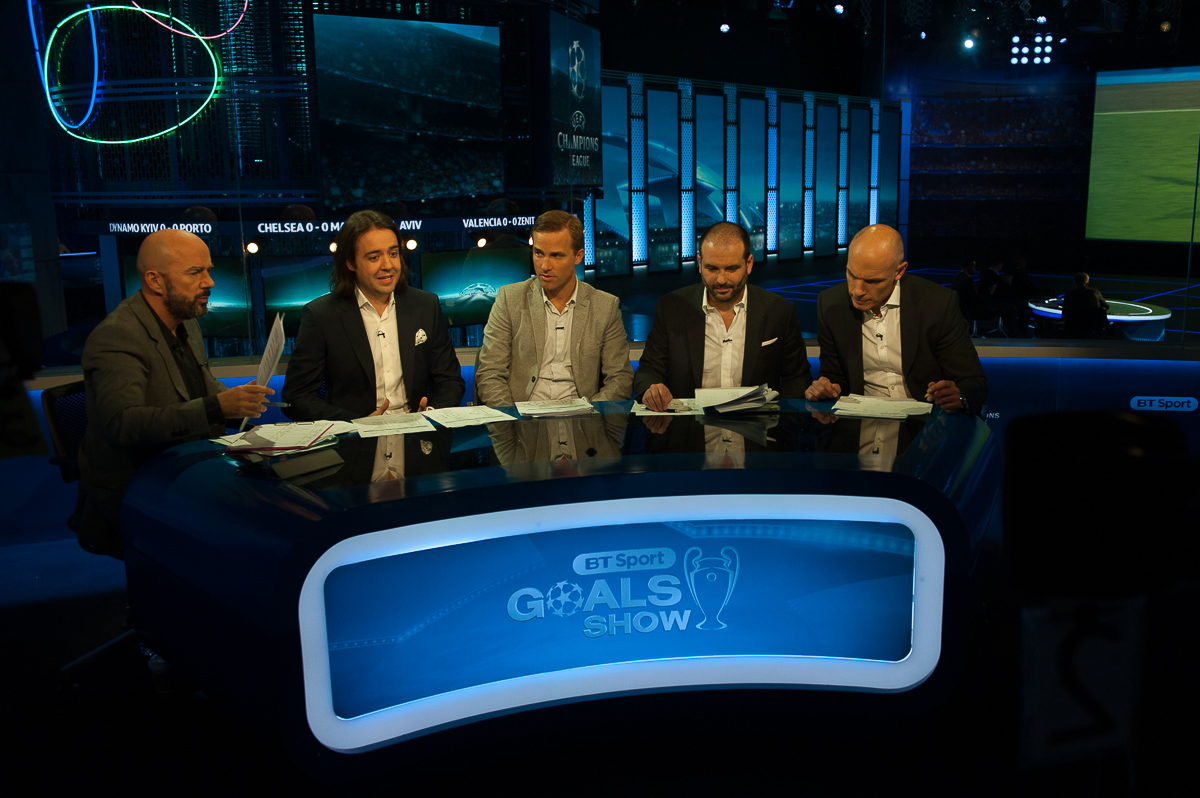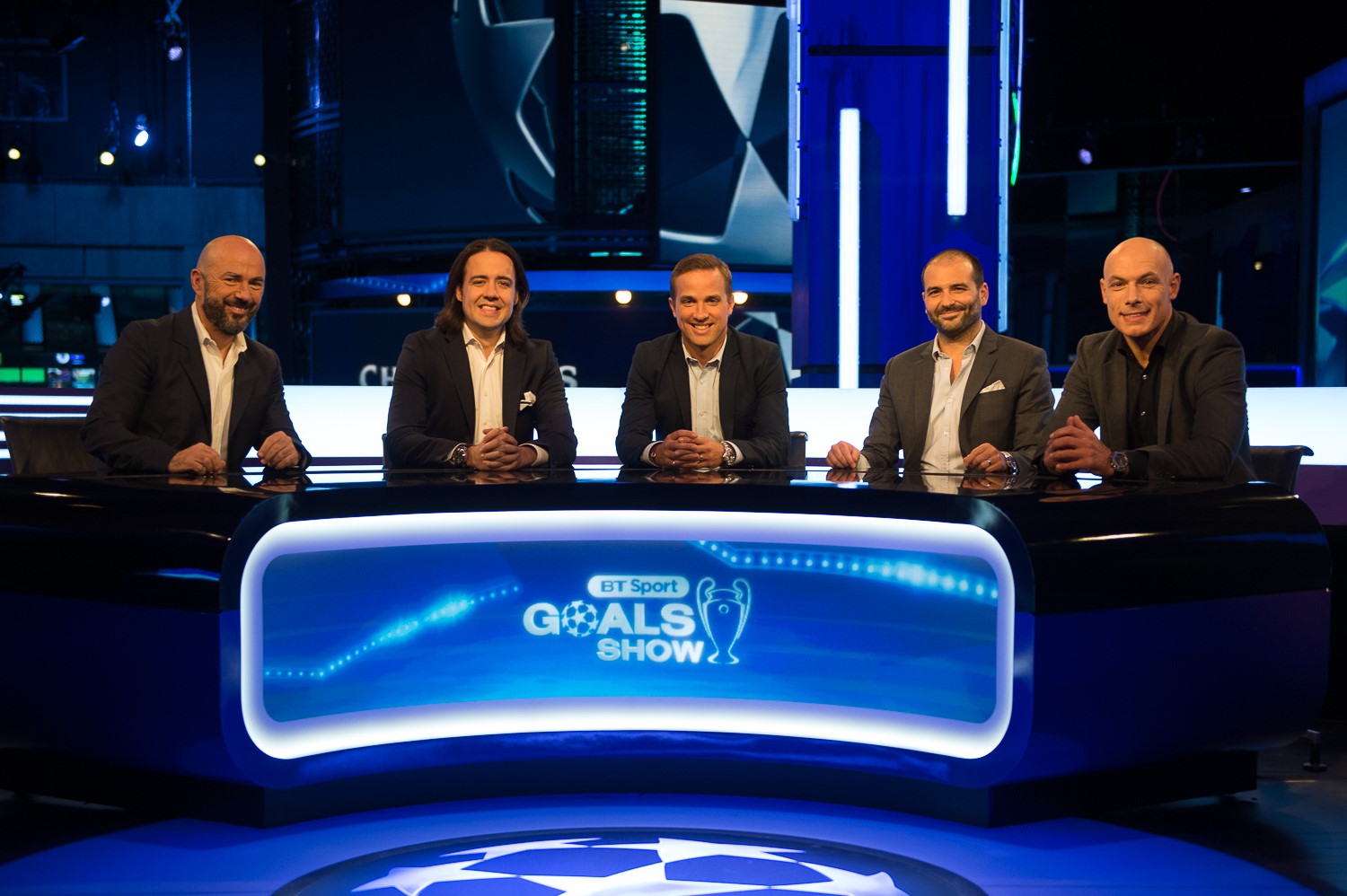I was reading Sam Wallace today in the Telegraph. He was talking about McLaren and Newcastle and how he came into a squad he had no input in. He didn’t really have personal recruitment. What’s the relationship like between sporting directors and owners, and does that increase the indispensability of managers?
Raphael Honigstein [RH]: Well first of all, I think that it’s the easiest thing for a manager to say oh it’s not my squad, I didn’t have the chance to buy these players. The job of management is actually to coach the players that you have, not to worry about players that you don’t have, or sign somebody else. At least that is the way it’s understood anywhere outside of the UK, where management I guess has a wider definition and different tradition of history of what you’re in change of. But everywhere else, certainly the leagues that we cover, clubs are run by a combination of people, you could call it even a transfer committee if you want to, and the manager has just one voice in that, he will have some input, but by no means the definitive voice, not going to be able to build a squad in his own image, all sign such players that he wishes, because the clubs don’t want to give all that power to one single individual. It’s a system that works really well when you have an outstanding once in a lifetime figures like Sir Alex Ferguson or Arsene Wenger, most managers aren’t like that, and most clubs suffer greatly when they, lets say, to take the alternative stance, say to Steve Mclaren, ok, you can buy all the players you want. Then they’re not performing, then they fire him, then the next guy will say exactly the same thing as Sam Wallace just said now, oh well I can’t work with these guys, it’s not my squad, it’s Steve Mclaren’s squad, I need to buy a new squad.And that’s no way to run a club, if you have an overhaul of a squad every few years. You waste so much money. So the better run clubs, even in the Premier League, are getting round to the view that managers are there to coach, and the club needs to build a squad. And there’s a huge conflict of interest when you think about it, between a manager who wants to optimise his chance of succeeding long term. If you gave him the money he’d buy all these players immediately, and then two or three years down the line, you have these guys on enormous contracts, who might be only 30-32 years old. You had short term success but long term you’re completely screwed. So the manager, in my view, should never be given the role of building squads.
Andy Brassell [AB]: Agree 100% it’s just a ruinous philosophy. But it’s something that’s still quite…
RH: Hard to get rid of. It’s so engrained.
AB: Really culturally entrenched, as what should be the idea, one big man who deals with everything. But the idea that one man, whose tenure could really hang on 6 or 7 pivotal matches for example, you should entrust them with the entire future direction of the club is absolutely crazy. And I think if you look at clubs like Bayern, go back to the start of the century, go back to Lyon, who won seven successive titles in France under 4 different coaches, I think that’s functioned quite well.
I think you’re slowly getting to that point in the Premier League, where you’ve got clubs like Swansea and Southampton, who have a really strong infrastructure, pick a coach, and I think it’s important to make that distinction between a head coach and a manager, who fits their philosophy, rather than a head coach or manager who sets the philosophy, which is an altogether more dangerous thing.
Horncastle [JH]: I think the job’s changed now as well, I think in the past…
James Richardson [JR]: Got more fierce
JH: It’s got more fierce, yeah. The market in which managers were recruiting in was only in GB and Ireland and if they were really adventurous then France and the low countries. Now, the world’s got a lot smaller, you can’t possible expect one manager to take charge of all the coaching sessions, planning and preparing for games, and then watch matches, scout players in the Ecuadorian 2nd division and all these other places, where clubs like Porto find real value. So I think we’re actually seeing clubs in this country adopt practices that have been the norm in other countries for decades, you’re finally seeing roles more and more defined, coaches are there to coach, director of sport is there to find players for the team, and ensure that the club finds the players the results irrespective of who the manager is, if you like.
RH: I think if you want any example of why a club should have a sporting director, someone between the board and the coach, it’s Man United. They used to rely on the system of having one guy doing everything, since he’s gone you can see there’s a real lack of expertise.
AB: It’s kind of like the idea of that sort of fancy world before he took over at Liverpool, those polls asking whether Arsenal should get rid of Wenger while Klopp was free. The idea that you could remove Wenger and just put in another guy and it would work, is ridiculous, because Wenger is responsible for so much. You need a whole management restructure before you get to the point of putting in a head coach, whether that would be him moving upstairs as a sporting director or a general manager, which I think is probably quite an unlikely scenario, is rather here nor there really. Arsenal, for example, are in a very particular situation, like Manchester United, they need to prepare the ground at some point, probably starting right now, for post Wenger, rather than just plucking a super coach out of the air. Even Guardiola for example, I think he enjoys the freedom he has at Bayern to just do his job, whereas he was expected to be this figure head for the sporting catalan nation and all this other stuff in Barcelona, which totally ran him down. So to expect him to be that sort of manager when, if, he comes to the Premier League I don’t think would suit him.
JH: I think the ideal is, if you’re going to appoint a director of sport and you haven’t had one before, it’s best to do it when you’re also bringing in another manager, or you bring him in and let him pick the manager. For example, tonight on the European Football Show, we have Carpi playing against Milan, Carpi have 4 promotions in 6 years, in the summer they lose their director of sport Cristiano Giuntoli to Napoli and they bring in someone called Sean Sogliano who was director of sport at Verona, very highly rated because when Verona came up they didn’t just survive, they ended up top half of the table. But he came in, found an incumbent manager in Fabrizio Castori, and he had his own ideas of how he was going to go about things. So he brought in 18 new players, when Castori wanted to stay true to the team that had got promoted that year, and so you saw clashes between them, new signings not being included in the starting XI, and it came to a head with Castori getting the sack, and he very popular among the players and the fans for what he did last season, players and fans revolted at the appointment of a new manager. Within a month that new manager gets sacked, Castori is brough back and Sogliano resigns. So it’s a very delicate decision making process in terms of how you go about running your club.
We have a big week coming up in the Champions League, with three English clubs having to get a result to qualify. United playing a Wolfsburg side with a great record at home, Arsenal having to win by two goals at Olympiakos, where they’ve never won before, and Chelsea needing a point against a strong Porto side. How do you rate their chances of qualifying, and if more than one of them doing qualify, what does it say about the Premier League and the rest of Europe?
RH: Well the Premier League have struggled in the Champions League for a while now, ever since 2008 where they had three semi finalists, the final results have been progressively worse. They’ve had the blip in a way, when Chelsea won it in 2012, but the trend is clear to see. I think in a way it reflects the strength of the Premier League, because when you have that amount of competition to get in, I do believe that it actually affects you adversely when it comes to Europe. You cannot rest players, every game is more of a battle. The squads also aren’t as good, I think that’s a key thing. If you are Real Madrid or Barcelona or Bayern, you have a natural advantage of taking the best domestic talent, and they you can go out and buy two or three foreigners who can really make a difference. Whereas here, there aren’t many good domestic players to begin with, they’re spread around, every team might have one, overall quality isn’t very high relative to the best teams in Europe. So there are lots of factors I think, effecting them adversely. Having said that, I’m still surprised that a team of United’s quality should struggle, I’m still surprised that Arsenal might be knocked out. I think there are obvious reasons that are bigger than the Premier League’s problems if you want, because you should never lose against Eindhoven, and struggle against Olympiakos and Zagreb if you’re Arsenal. I think United are in real trouble, I don’t see them winning at Wolfsburg, I think from all the teams they’re most likely to get knocked out.
AB: More so than Arsenal?
RH: Yeah, because I think Arsenal can go and get a result there, they can win 2-0, they can win 3-2. I’d say Wolfsburg are tougher to beat than Olympiakos, especially for United.
AB: Yeah I mean you can’t argue with that by Wolfsburg’s recent home record. But I only see Chelsea getting through out of those three tbh, and I think Chelsea will probably make hard work of it. I just think that sense of Arsenal knowing what they have to get is making people rate their chances, and underrate the difficulty of going to Olympiakos and doing it. They’ve got this record start now, which maybe doesn’t mean that much in the context of the fact that they’ve won 17 of the last 19 Championships, but they’ve won 14 in a row at the start, they’ve got a really smart coach in Marco Silva who is not going to prove himself by winning the Group Super League.
RH: He’s very good
AB: He’s really smart, and a lot of premier league clubs, when he was still at Estoril, sent people over to see how he worked. I think he’s someone who will probably pitch up in England at some point, even though he’s had a bit of a turbulent time in the last couple of years. I think he kind of outthought Wenger in the first game, and I wouldn’t bet against him doing it in the second. Also Olympiakos have a lot of really experienced players who know how to deal with those big occasions, like Reberto, and Troy Dominguez. But really, I’m not sure I by into Arsenal’s failure, as I guess it will be if they don’t get into the Champions League last 16, as being necessarily intrinsic of overall English problems in the Champions League, because they just really took their eye off the ball in the first couple of games, I’m not sure it suggest intrinsic faults, or stuff that’s endemic.
RH: But getting knocked out five times in a row in the last 16, shows that they’re just not among the elite, for the 4th best team in England, to not be one of the best eight teams in England shows you where they are.
JR: The maths are there, if you’re the 4th best team in England and you’re looking at five major leagues in Europe, you’ve got 20, if you’re only the fourth best team you can’t necessarily expect to be in the top 8 in Europe.
RH: They used to be that’s the point.
JH: The issue for Premier League clubs is all 20 Premier League clubs are in the top 40 richest clubs in the world. And they’re either not spending their money very well, and when you look at some of the other teams that have done well in the Champions League, that don’t have budgets that compare, getting to finals, Dortmund, Atletico Madrid, even Juve, it makes the Premier League clubs look silly. Arsenal first and foremost, Olympiakos, Dinamo Zagreb, Monaco last year, I mean come on, these are teams they should be comfortably dealing with. Whether it be issues of recruitment,
RH: Or non recruitment,
JH: tactical preparation or lack thereof, attitude, it’s disappointing. These clubs are set up to be more successful in Europe than they are, Man City are another complete enigma in Europe.
RH: It’s great, positive!
Watch Wolfsburg v Manchester United in the UEFA Champions League live and exclusive on BT Sport Europe from 6:30pm on Tuesday 8 December or Manchester City v Borussia Monchengladbach on BT Sport 2 from 7pm on Tuesday 8 December. Olympiakos v Arsenal will be exclusive on BT Sport Europe and Chelsea v Porto on BT Sport 2 Wednesday 9 December.
Oscar Wood
Latest posts by Oscar Wood (see all)
- So this is what Arsenal getting the best out of Aaron Ramsey looks like - December 9, 2017
- Why Arsenal Should Attempt to Break the Bank on Mateo Kovacic - July 28, 2017
- Why Arsenal must give Xhaka and Ramsey a run of games in the midfield - November 25, 2016


